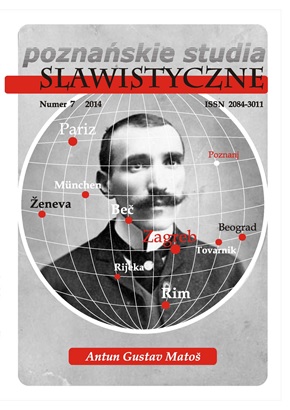Matoš i Radić: dwie koncepcje kultury
Matoš and Radić: Two Concepts of Culture
Author(s): Maciej FalskiSubject(s): Literary Texts
Published by: Uniwersytet Adama Mickiewicza
Keywords: Antun Gustav Matoš; Antun Radić; Croatian culture; authenticity; peasantry; Croatian elites
Summary/Abstract: Antun Gustav Matoš and Antun Radić were leading the Croatian intellectuals of their era. Radić, an ethnologist, formulated the concept of culture, in which the most important significance for the national identity was attributed to the people. He considered peasantry authentic and free of contaminations, accusing the elite of cosmopolitanism and abandoning of the Croatian source values. Meanwhile, for Matoš the most important factor in the Croatian culture was opening to the foreign infl uences and to their creative force. As a consequence, the opposition between the writer and the ethnologist appears, corresponding to the concept of open and closed culture. Despite the use of the same dichotomy of the elites and the people, each of them assigns different values of both cultural strata. Radić politicizes the peasantry and tries to bring it to the public sphere, pretending to defend the values of the indigenous Croatian culture, while Matoš, regardless of his political nationalism, creates the elitist vision of open and inclusive culture.
Journal: Poznańskie Studia Slawistyczne
- Issue Year: 2014
- Issue No: 07
- Page Range: 91-106
- Page Count: 16
- Language: Polish

